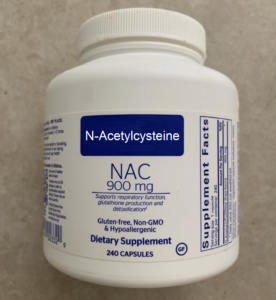Berberine: A Potential Treatment for Diabetes, Heart Disease and Diarrhea

Berberine is a bright yellow compound found in a number of common herbs, including Oregon grape root (Mahonia aquifolium), goldenseal (Hydrastis canadensis), barberry (Berberis vulgaris), goldenthread (Coptis chinensis) and others. Herbs high in berberine have a long history of use in herbal medicine from North America, Europe and Asia.
More recently, berberine has been isolated from these herbs and is now available as a stand-alone nutritional supplement. And human trials of berberine are beginning to document some potent benefits, generally with minimal side effects. While more research is needed on long-term safety, the data on berberine so far is promising for the treatment of:
- Diabetes and blood sugar problems
- Heart disease
- Gastrointestinal conditions
Berberine and Blood Sugar
One of the earliest trials of berberine as a treatment for diabetes was on over 100 patients. Study subjects took a total of 1000 mg of berberine daily or placebo for three months. Fasting blood sugar levels dropped by 20% and total cholesterol by 18%. The author’s concluded that berberine was safe and effective for both diabetes and cholesterol problems in diabetic patients (Zhang 2008).
A smaller trial in newly diagnosed diabetic patients found even greater effects on blood sugar using a higher dose. Patients were instructed to take 500 mg of berberine three times per day or standard diabetes medication. Fasting blood sugar dropped by 35% and total cholesterol by 13% with berberine. The benefits were comparable to standard medication (Yin 2009).
A meta-analysis in 2021 included 46 clinical trials in diabetic patients and found that berberine effectively lowers blood sugar, cholesterol and body mass index (by promoting weight loss). The author’s concluded that there is strong evidence for efficacy and safety of berberine in the treatment of diabetes (Guo 2021).
Heart Disease
A study on congestive heart failure, where the heart muscle begins to fail and can no longer pump blood effectively, found berberine to be helpful. Of 156 patients, approximately half were given standard care with berberine while the other half received standard care with placebo. Berberine treatment significantly improved heart function and quality of life, while decreasing shortness of breath. Even more notably, the risk of death decreased by almost half. Concerning side effects from berberine were absent throughout the course of the study (Zeng 2003).
A separate study in humans also determined that berberine was protective of the heart. Patients undergoing stent therapy for heart disease were given berberine or placebo. Berberine lowered inflammation levels in patients, confirming a likely protective effect (Qing 2018). Further research in patients undergoing stent procedures found that berberine decreased immune cell activation. In heart disease, immune cell activation is one of the key components that leads to atherosclerosis—the damaging buildup of plaque in the arteries (Pei 2019).
A meta-analysis of berberine for treating high cholesterol and high triglycerides, a type of fat in the bloodstream that raises heart disease risks, also showed benefits. Berberine was effective for reducing total cholesterol, LDL (bad) cholesterol and triglycerides while raising HDL (good) cholesterol (Ju 2018). Again, side effects were minimal, with no serious adverse events reported.
While evidence also suggests blood pressure lowering effects (Lan 2015), some concerns over the quality of evidence have been raised (Suadoni 2021).
Gastrointestinal Conditions

Berberine has significant antibacterial benefits (Cernakova 2002). Yet berberine appears to be selective in its effects. When taken orally, the research suggests that berberine promotes healthy gut flora, rather than the indiscriminate clearing of all gastrointestinal bacteria (Habtemariam 2020).
One of the earliest uses of berberine-containing herbs was for the treatment of acute diarrhea. And research supports its use. A recent meta-analysis explored the clinical studies in both children and adults. The authors concluded that berberine shortens the duration and improves cure rates of patient’s suffering with diarrhea (Yu 2020). No severe side effects were found, although the need for more safety data was highlighted.
In patients with diarrhea-predominant irritable bowel syndrome, berberine also appears to help. Irritable bowel syndrome is a combination of either diarrhea or constipation and pain associated with bowel movements. For diarrhea-predominant irritable bowel syndrome, berberine was shown to decrease diarrhea and reduce abdominal pain. The treatment was also well tolerated (Chen 2015).
Emerging evidence even suggests benefits for inflammatory bowel disease, including Crohn’s disease or ulcerative colitis. A small preliminary clinical trial found reduced tissue inflammation with its use in patients struggling with ulcerative colitis (Xu 2020, Ashrafizadeh 2020). Short-term nausea and a transient increase in liver enzymes were noted as side effects, although episodic elevation of liver enzymes is common in inflammatory bowel disease occurring in 50% of patients (Klein 2020).
Conclusion
Berberine is a promising therapeutic compound with human studies suggesting significant benefits for diabetes, heart disease and diarrhea-related conditions. While more safety data would be useful, the majority of the studies show minimal risks, with the most common side effects being short-term gastrointestinal discomfort.



